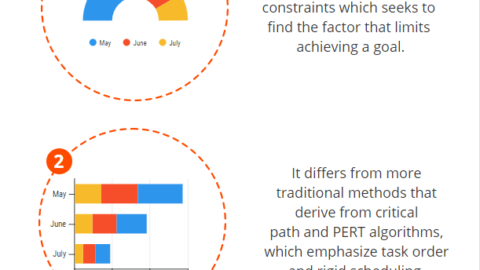What Makes a Project Manager Successful?- 6 Habits of Successful Project Managers
What makes a project manager successful? or What are the habits of successful project managers? I asked these questions many times myself and decided to write this article to clarify the rules of highly successful project management.
Table of Contents
For what reason do certain project managers acquire their projects on schedule, on spending plan, and with fulfilled clients while others make some hard memories? Let’s talk about the six habits that highly successful project managers share to find out.
These habits get referenced again and again in execution examinations and in end-of-project surveys where the customer, team, or sponsor is offering input to the project manager.
You don’t have to have many years of experience to convey achievement without fail. By changing your habits and catching up on your aptitudes, you can radically improve the odds of your project being a triumph and give yourself a less distressing time at function too.
Project Manager Skills and Competencies
Discover the secrets to success in project management! Watch our video on Project Manager Skills and Competencies to uncover the key qualities that make a project manager successful.
Six Habits of Successful Project Managers
Below are the six habits of successful project managers.
1. Using the Team and Delegating Responsibilities
The best project managers know the abilities of their colleagues. It implies that they can dispense the right work to the right team members.
Utilizing an inappropriate team member on an assignment can prompt it to take longer or being ineffectively done. A successful project manager is someone who knows the qualities and shortcomings of the people working with him/her and assigns the right people to the right project activity.
2. Dealing with Changes
Projects are intended to change things, yet that sort of progress is going on to others. It is often difficult for project teams to deal with the change that is pointed solidly at the project group, making new work and update an entire heap of documentation.
Successful project managers often follow a change management process to deal with changes.
Following characterized steps makes it simpler to transform any activity into a habit since it’s organized and followed.
The change management process resembles this:
- Get data about the change
- Evaluate the change
- Set up how much work it does the change
- Set up a recommendation about whether it merits proceeding
When you’ve arranged a recommendation, request that your sponsor get a choice about whether you should consolidate the change or not. You can deal with some little changes yourself as long as they are inside your dispatch and authority levels. Successful project managers realize that adapting to changes is a piece of the activity and they have the arrangement to manage them as and when they emerge.
3. Managing Project Budget
Almost certainly, your project will cause costs as a result of your project activities, and stakeholder’s requirements. Having the option to oversee money-related components in your control must be a propensity. In the event that you don’t manage your project’s funds consistently and routinely, you will miss the thread.
Successful project managers have the ability to view the whole picture and manage invoices, quotes, and estimates.
You can’t deal with your project costs until you have an arrangement for what you will spend. Figure out how to make a project spending plan so you can begin.
4. Managing the Project Schedule
Project schedules shouldn’t be left to risk. Successful project managers will make it a propensity to routinely check their project schedules for precision and update them.
There are heaps of approaches to track your project’s performance. The most significant thing is that you do it. On the off chance that you are battling to make this propensity your own, at that point book a short meeting in your diary with your team members and your schedule once a week. Utilize a similar time every week and take 15 minutes to survey where you are and where you should be. Make the fundamental revisions and alert the team members regarding project performance.
In the event that there is a change on the end date for the project or the completion date for significant achievements, at that point converse with your project sponsor. You shouldn’t change the essentials of your baseline schedule without following a formal approval process.
5. Dealing with Risks
Recognizing what to remember for your risk register is a certain something, however, constantly exploring it and following up on the risks raised is something to be done thoroughly. It’s insufficient to identify the risks at the beginning of your project and not to track them during the course of your project. Risk management should be a piece of your project responsibilities in light of the fact that without it you’ll see those risks transform into dangers and make issues for you.
It is another zone where standard procedures and booking an ordinary space to do a risk review can help. You can include it as a major aspect of your meetings. Make it a propensity to track your risks with the team members, close any that are never again risk and plan actions for those that you need to respond.
6. Understanding Processes
Successful project managers understand the processes that exist within their sphere of control. That implies that they comprehend what work methods should be pursued. For example, they know how to write a business case thoroughly because all the steps are written in the procedure. The only thing to do is to follow those steps.
Last Words on the Habits of Successful Project Managers
Obviously, every project manager wants to be successful. Successful project managers have some common habits. Managing project risks, budget, schedule, and dealing with risks successfully are some of them. Note that ideal project managers are leaders, not managers. Therefore they need to be flexible and open to communication. In this article, we discussed what makes a project manager successful. If you want to add or share your opinions, please use the comments section below.
See Also
what does a project plan include
Further Reading

Over 20 years in portfolio management, streamlining business processes, and systems integration. Utilizing best practices: PMI, Scrum, Agile, Kanban, Lean/Six Sigma, CMMI, ITIL and MOF. Extensive experience in managing in cross functional environment, getting to the root of the problem, bringing stakeholders together to resolve them. Vice President at Force3M Training.











If you pay attention to successful companies’ leaders, you will see that they all have these habits.
I need to get this Six Habits urgently.